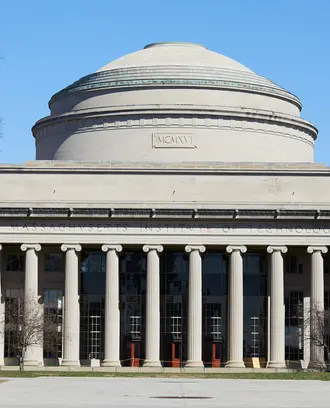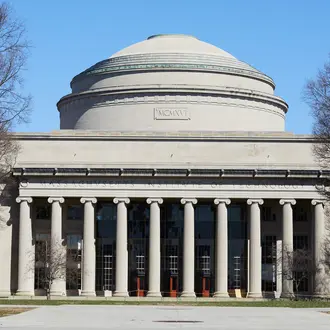For Russell Low, CEO of Axcelis Technologies and a 2012 graduate of the MIT Executive MBA, the journey from being a technical engineer to a visionary leader has been as much about personal growth as professional success.
With a PhD in physical chemistry from Oxford and more than two decades of experience in the semiconductor and solar capital equipment industries, Russell’s career reflects a thoughtful evolution from technical expertise to executive leadership.
What motivated you to pursue an MBA? Why MIT Sloan?
Russell Low, EMBA '12
When I started considering an MBA, people said, “You have a PhD. Why would you need an MBA?” I replied, “The reason I need an MBA is because I have a PhD.” I wasn’t being taken seriously as a businessperson. I studied as a scientist, and I was developing technology. I was doing the critical innovation for a technology company, but wanted to move into becoming a general manager. People kept saying, “No—you're a really good technologist. Stay there.” But I wanted to do more, so I did the MBA.
I needed to reinvent myself as somebody who wasn't just an engineer. The program gave me the tools, the confidence, and the network to make that leap.
My goal was to transition from being a technologist to a general manager with full P&L responsibilities. I wanted to be in a position where I could drive strategy and make impactful decisions at a higher level. I wasn’t aiming to become a CEO at the time, but the MBA equipped me with the frameworks and confidence to pursue leadership roles. It was about gaining credibility in the business world and rounding out my skills, particularly in finance, operations, and leadership.
MIT was the natural choice for me because of its emphasis on technology and innovation. I’ve always loved learning, and wanted to be in an environment that was rigorous and practical. MIT’s technical focus matched my background perfectly. I also wanted an in-person experience, where I could build relationships with my cohort and learn from their diverse experiences. That was incredibly important to me—a decision I’d make again in a heartbeat.
Can you share examples of how you’ve applied lessons from the EMBA program in your work?
One of the most impactful lessons was from System Dynamics with John Sterman. We looked at feedback loops, time lags, and systems thinking. I applied that to address inefficiencies in our engineering change order (ECO) process. Historically, there were silos between engineering and manufacturing, which led to rework and delays. By involving all stakeholders earlier and redesigning the process, we reduced errors and improved efficiency.
As a PhD scientist, I’ll admit EQ (emotional intelligence) wasn’t my strong suit. But at MIT, I learned that IQ alone isn’t enough to succeed as a leader. No strategy can succeed without the support of your team. Building trust, fostering collaboration, and aligning everyone toward a common goal are crucial. These skills have been pivotal in my role as CEO, especially when managing cross-functional teams and navigating complex challenges.
I focused on building trust, understanding what motivates people, and aligning my team around shared goals. Those skills have been pivotal in creating a culture of collaboration and innovation.
I remember a specific lesson about understanding four pillars to motivation—gaining resources, not losing resources, being part of something meaningful, and being challenged. That framework has been invaluable to me in managing and inspiring my team.
How has the program influenced your leadership style?
Before MIT, I led teams by relying on my technical expertise. If there was a problem, I’d solve it myself. The program taught me to step back and empower others. Leadership isn’t about being the smartest person in the room—it’s about enabling your team to thrive.
I think success is equal amounts of IQ and EQ. The people in the class were some of the smartest I’d ever met—everyone had done well in their careers. But what I learned at MIT was IQ alone isn’t enough to take you to the next level. Leadership is about emotional intelligence, building trust, and understanding that people are the driving force behind any success.
As a CEO, I focus on three things: strategy, culture, and building the right team. I don’t do the day-to-day technical work anymore, but I make sure my team has what they need to succeed. I’ve also embraced continuous learning. Recently, I started a digital certificate at MIT in AI and digital business to stay ahead of emerging trends. That mindset of curiosity and adaptability is something I carry with me every day.
What’s your perspective on the ROI of the program?
I often tell people the EMBA program is an investment in yourself. It’s not just about the knowledge you gain but also about the mindset you develop. That shift has been invaluable for me, both professionally and personally. Would I have gotten the promotions without the EMBA? I don’t know. It’s hard to quantify how much the EMBA directly contributed, but I firmly believe it was pivotal in helping me achieve leadership roles and be placed on succession tracks.
But the ROI isn’t just about money. The program changed how I think, lead, and approach challenges. It gave me a network, a strategic lens, and a renewed sense of purpose. If I had to do it all over again, I’d invest in the program without hesitation.



